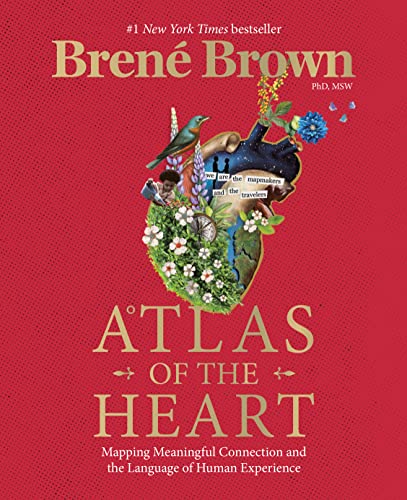Atlas of the Heart: Mapping Meaningful Connection and the Language of Human Experience
amazon.com
Saved by Irene Forti and
Atlas of the Heart: Mapping Meaningful Connection and the Language of Human Experience

Saved by Irene Forti and
Vulnerability is the first thing we look for in other people, and the last thing we want to show them about ourselves.
My hope is that we find that solid ground within us, that shore that offers safe harbor when we’re feeling untethered and adrift. The more confident we are about being able to navigate to that place, the more daring our adventures, and the more connected we are to ourselves and each other. The real gift of learning language, practicing this work, a
... See moreThere’s compelling research that shows that compassion fatigue occurs when caregivers focus on their own personal distress reaction rather than on the experience of the person they are caring for. Focusing on one’s own emotional reaction results in an inability to respond empathically to the person in need.
This is one reason we need to dispel the myth that empathy is “walking in someone else’s shoes.” Rather than walking in your shoes, I need to learn how to listen to the story you tell about what it’s like in your shoes and believe you even when it doesn’t match my experiences.
My research has taught me that acknowledging and naming our own sadness is critical in the formation of compassion and empathy.
Contentment is about satisfaction, and that, ironically, is an unsatisfying idea for a lot of people. It just doesn’t seem like enough in a world that tells us every minute should be big and life should be OMG-level exciting at all times.
“The near enemies depict how spirituality can be misunderstood or misused to separate us from life.”
Forgas goes on to explain, “Evolutionary theory suggests that we should embrace all of our emotions, as each has an important role to play under the right circumstances. So, though you may seek ways to increase happiness, don’t haphazardly push away your sadness. No doubt, it’s there for good reason.”
Our research team member Ellen Alley explains that our self-esteem is considered fragile when our failures, mistakes, and imperfections decrease our self-worth. In our work, the opposite of a fragile self-esteem is grounded confidence. With grounded confidence, we accept our imperfections and they don’t diminish our self-worth. It makes sense that
... See more